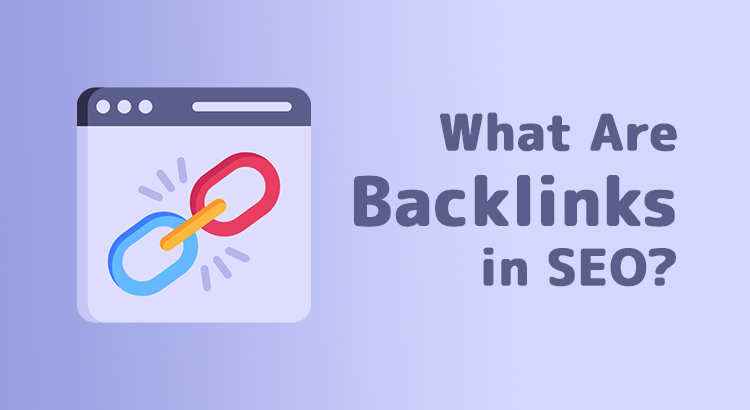Backlinks are vital components of SEO, serving as pathways from one website to another. These links indicate the credibility and authority of a website. In addition to fostering brand visibility and driving referral traffic, backlinks significantly impact a website’s SEO performance. This article explains what are backlinks in SEO and why they are essential for improving website visibility and search engine rankings.
Related Article: How to Get Backlinks for Your Website: Strategic Steps
List of Contents
- What Are Backlinks?
- How Do SEO Backlinks Work?
- Types of Backlinks in SEO
- Why Are Backlinks Important For SEO?
- How to Generate Backlinks in SEO?
- Conclusion of What Are Backlinks in SEO
What Are Backlinks?
Backlinks are links from external websites pointing to your site. They serve as votes of confidence, indicating to search engines the credibility and relevance of your content.
How Do SEO Backlinks Work?
SEO backlinks function as commendations or validations from one website to another in the digital ecosystem. When a website links to another, particularly if it possesses high authority, search engines interpret this as an endorsement.
The accumulation of high-quality backlinks from authoritative sources enhances a website’s reputation in the eyes of search engines, ultimately contributing to improved search rankings.
Types of Backlinks in SEO
1. Editorial Backlinks
These are links acquired naturally through mentions within content, typically from high-authority websites.
2. Guest Blogging Backlinks
Links obtained by contributing guest posts to other websites, often leading to mutually beneficial relationships.
3. Relationship-Based Backlinks
Links cultivated through nurturing relationships with other websites and stakeholders in the industry.
4. Backlinks in Business Profiles
Links acquired by establishing a digital presence through business profiles on various platforms.
5. Backlinks from Public Speaking
Links garnered by participating in public speaking engagements, showcasing expertise and credibility.
6. Embedded Asset Links
Links obtained through the inclusion of tools, widgets, awards, or badges on other websites.
Why Are Backlinks Important For SEO?
Backlinks serve as foundational elements of website authority and credibility. They signify validations from other websites, signaling to search engines that the content is valuable and trustworthy.
As such, the accumulation of backlinks contributes significantly to a website’s search engine rankings, reflecting its relevance and reliability in the online domain.
How to Generate Backlinks in SEO?
1. Find Backlink Opportunities with Top Referral Sources
Explore websites linking to your content to discover potential backlink avenues. Understanding their preferences enables the creation of similar content, attracting backlinks.
2. Utilize Outbound Links to Form Partnerships
Leverage outbound links to reputable sites for partnership opportunities. By initiating collaborations, you can secure backlinks while offering mutual benefits and value.
3. Utilize Google Search Console Reports to Get Backlinks
Utilize Google Search Console’s Top linking sites report to identify past backlink sources. Leveraging familiarity with your website, reach out to relevant sites with compelling content for additional backlinks.
4. Spy on Your Competitors
Ethically analyze competitors’ strategies to uncover backlink sources and content tactics. This insight informs your own backlink acquisition efforts and keeps you abreast of industry trends.
Related Article: How to Do SEO Competitor Analysis?
5. Find Broken Links to Build Backlinks
Identify broken links on competitor websites as opportunities for backlink acquisition. Offering relevant replacement content allows you to capitalize on link decay and secure valuable backlinks.
6. Create High-Quality Content That’s Link-Worthy
Invest in creating top-notch content that attracts backlinks from industry experts and bloggers. Crafting comprehensive and engaging content establishes your site as a reputable resource.
Learn More: Content Quality vs. Quantity: Striking the Right Balance
7. Publish Skyscraper Content
Develop detailed, comprehensive content that surpasses existing resources on a topic. By creating highly valuable content, you attract backlinks from sites seeking authoritative sources.
8. Use Infographics to Capture Backlinks
Utilize visually appealing infographics to convey information attractively. Infographics simplify complex concepts, making them shareable assets that attract backlinks from sites seeking visual content.
9. Write Testimonials for Backlinks
Provide testimonials for relevant products or services in exchange for backlinks. Leveraging social proof enhances your credibility while acquiring valuable backlinks.
10. Engage with Help a Reporter Out (HARO)
Respond to relevant queries on HARO to offer insights and expertise. Securing backlinks from high-authority news websites and blogs boosts your site’s credibility and trustworthiness.
11. Start Guest Blogging
Contribute guest posts to websites accepting submissions, leveraging author bios or content links for backlink acquisition. Guest blogging establishes your authority within your niche while acquiring valuable backlinks.
Useful Article: Why Guest Blogging is Important for SEO?
12. Take Part in Interviews for Backlinks
Participate in interviews on industry-related platforms or through HARO queries. Being featured in interviews not only boosts your credibility but also secures backlinks from interview hosts.
13. Do Guest Appearances on Podcasts
Secure backlinks by appearing as a guest on relevant podcasts. Utilize platforms like Spotify and iTunes to find podcasts within your niche, offering expertise in exchange for backlinks.
14. Participate in Different Forums for Backlinks
Engage in industry forums to establish expertise and drive traffic to your site. Participating in discussions allows you to share insights and acquire backlinks from forum signatures or mentions.
15. List Your Site on Resource Pages
Identify resource pages relevant to your niche and request inclusion of your website. Being listed on resource pages provides exposure and valuable backlinks from curated lists of useful resources.
Conclusion of What Are Backlinks in SEO
Backlinks are important assets for enhancing a website’s authority and credibility. By fostering connections with other websites and producing high-quality content, websites can generate backlinks that not only improve SEO performance but also establish their prominence within their respective industries.
Frequently Asked Questions
Do Backlinks Help SEO?
Yes, backlinks are crucial for SEO as they demonstrate to search engines like Google the authority and credibility of a website. When high-authority domains link to a website, it signals to search engines that the content is valuable and trustworthy, thereby positively impacting search rankings.


